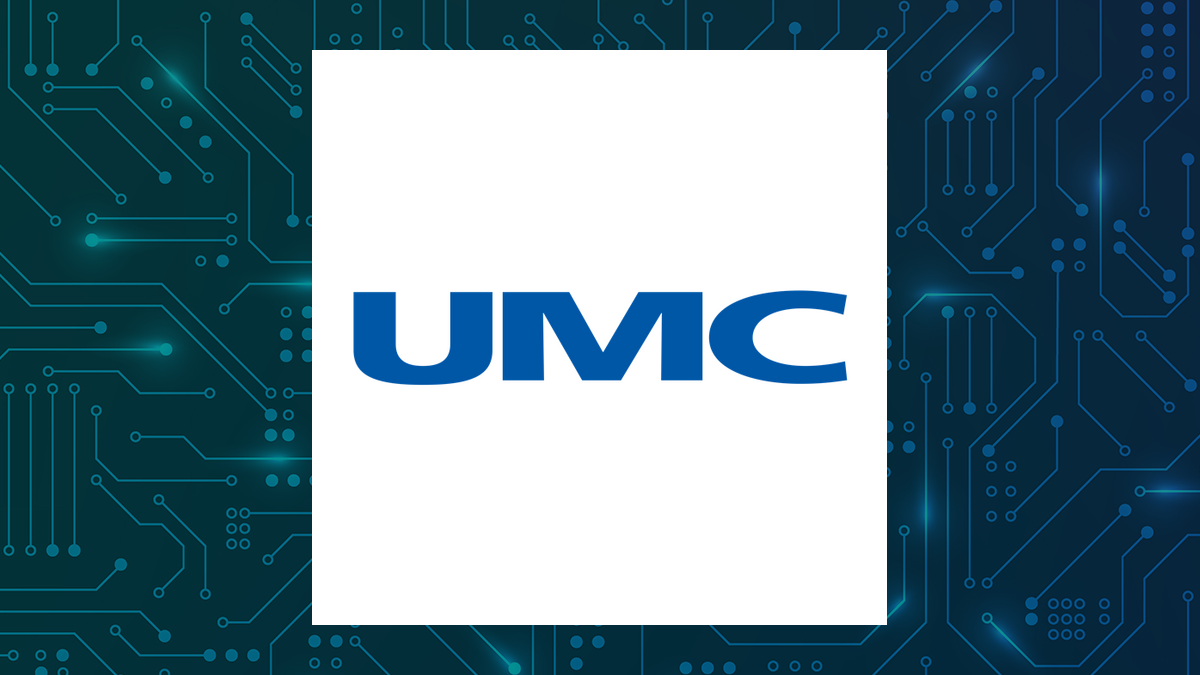Broadcom (NASDAQ:AVGO – Get Free Report) and United Microelectronics (NYSE:UMC – Get Free Report) are both large-cap computer and technology companies, but which is the superior investment? We will compare the two businesses based on the strength of their analyst recommendations, earnings, institutional ownership, dividends, profitability, risk and valuation.
Insider and Institutional Ownership
76.4% of Broadcom shares are owned by institutional investors. Comparatively, 5.1% of United Microelectronics shares are owned by institutional investors. 2.0% of Broadcom shares are owned by company insiders. Comparatively, 8.0% of United Microelectronics shares are owned by company insiders. Strong institutional ownership is an indication that large money managers, hedge funds and endowments believe a company is poised for long-term growth.
Volatility & Risk
Broadcom has a beta of 1.03, suggesting that its stock price is 3% more volatile than the S&P 500. Comparatively, United Microelectronics has a beta of 1.17, suggesting that its stock price is 17% more volatile than the S&P 500.
Analyst Ratings
| Sell Ratings | Hold Ratings | Buy Ratings | Strong Buy Ratings | Rating Score | |
| Broadcom | 0 | 2 | 24 | 0 | 2.92 |
| United Microelectronics | 1 | 3 | 0 | 0 | 1.75 |
Broadcom presently has a consensus target price of $225.83, indicating a potential downside of 7.71%. United Microelectronics has a consensus target price of $7.40, indicating a potential upside of 29.71%. Given United Microelectronics’ higher possible upside, analysts clearly believe United Microelectronics is more favorable than Broadcom.
Profitability
This table compares Broadcom and United Microelectronics’ net margins, return on equity and return on assets.
| Net Margins | Return on Equity | Return on Assets | |
| Broadcom | 11.43% | 28.00% | 11.16% |
| United Microelectronics | 20.35% | 12.78% | 8.16% |
Dividends
Broadcom pays an annual dividend of $2.36 per share and has a dividend yield of 1.0%. United Microelectronics pays an annual dividend of $0.35 per share and has a dividend yield of 6.1%. Broadcom pays out 192.5% of its earnings in the form of a dividend, suggesting it may not have sufficient earnings to cover its dividend payment in the future. United Microelectronics pays out 60.3% of its earnings in the form of a dividend. Broadcom has raised its dividend for 13 consecutive years. United Microelectronics is clearly the better dividend stock, given its higher yield and lower payout ratio.
Earnings and Valuation
This table compares Broadcom and United Microelectronics”s revenue, earnings per share and valuation.
| Gross Revenue | Price/Sales Ratio | Net Income | Earnings Per Share | Price/Earnings Ratio | |
| Broadcom | $51.57 billion | 22.24 | $5.90 billion | $1.23 | 199.59 |
| United Microelectronics | $7.09 billion | 2.02 | $1.95 billion | $0.58 | 9.84 |
Broadcom has higher revenue and earnings than United Microelectronics. United Microelectronics is trading at a lower price-to-earnings ratio than Broadcom, indicating that it is currently the more affordable of the two stocks.
Summary
Broadcom beats United Microelectronics on 11 of the 17 factors compared between the two stocks.
About Broadcom
 Broadcom Inc. designs, develops, and supplies various semiconductor devices with a focus on complex digital and mixed signal complementary metal oxide semiconductor based devices and analog III-V based products worldwide. The company operates in two segments, Semiconductor Solutions and Infrastructure Software. It provides set-top box system-on-chips (SoCs); cable, digital subscriber line, and passive optical networking central office/consumer premise equipment SoCs; wireless local area network access point SoCs; Ethernet switching and routing custom silicon solutions; serializer/deserializer application specific integrated circuits; optical and copper, and physical layer devices; and fiber optic components and RF semiconductor devices. The company also offers RF front end modules and filter; Wi-Fi, Bluetooth, and global positioning system/global navigation satellite system SoCs; custom touch controllers; inductive charging; attached small computer system interface, and redundant array of independent disks controllers and adapters; peripheral component interconnect express; fiber channel host bus adapters; read channel based SoCs; custom flash controllers; preamplifiers; optocouplers, industrial fiber optics, and motion control encoders and subsystems; light emitting diode, ethernet PHYs, switch ICs, and camera microcontrollers. Its products are used in various applications, including enterprise and data center networking, home connectivity, set-top boxes, broadband access, telecommunication equipment, smartphones and base stations, data center servers and storage systems, factory automation, power generation and alternative energy systems, and electronic displays. Broadcom Inc. was founded in 1961 and is headquartered in Palo Alto, California.
Broadcom Inc. designs, develops, and supplies various semiconductor devices with a focus on complex digital and mixed signal complementary metal oxide semiconductor based devices and analog III-V based products worldwide. The company operates in two segments, Semiconductor Solutions and Infrastructure Software. It provides set-top box system-on-chips (SoCs); cable, digital subscriber line, and passive optical networking central office/consumer premise equipment SoCs; wireless local area network access point SoCs; Ethernet switching and routing custom silicon solutions; serializer/deserializer application specific integrated circuits; optical and copper, and physical layer devices; and fiber optic components and RF semiconductor devices. The company also offers RF front end modules and filter; Wi-Fi, Bluetooth, and global positioning system/global navigation satellite system SoCs; custom touch controllers; inductive charging; attached small computer system interface, and redundant array of independent disks controllers and adapters; peripheral component interconnect express; fiber channel host bus adapters; read channel based SoCs; custom flash controllers; preamplifiers; optocouplers, industrial fiber optics, and motion control encoders and subsystems; light emitting diode, ethernet PHYs, switch ICs, and camera microcontrollers. Its products are used in various applications, including enterprise and data center networking, home connectivity, set-top boxes, broadband access, telecommunication equipment, smartphones and base stations, data center servers and storage systems, factory automation, power generation and alternative energy systems, and electronic displays. Broadcom Inc. was founded in 1961 and is headquartered in Palo Alto, California.
About United Microelectronics
 United Microelectronics Corporation operates as a semiconductor wafer foundry in Taiwan, China, Hong Kong, Japan, Korea, the United States, Europe, and internationally. The company provides circuit design, mask tooling, wafer fabrication, and assembly and testing services. It serves fabless design companies and integrated device manufacturers. United Microelectronics Corporation was incorporated in 1980 and is headquartered in Hsinchu City, Taiwan.
United Microelectronics Corporation operates as a semiconductor wafer foundry in Taiwan, China, Hong Kong, Japan, Korea, the United States, Europe, and internationally. The company provides circuit design, mask tooling, wafer fabrication, and assembly and testing services. It serves fabless design companies and integrated device manufacturers. United Microelectronics Corporation was incorporated in 1980 and is headquartered in Hsinchu City, Taiwan.
Receive News & Ratings for Broadcom Daily - Enter your email address below to receive a concise daily summary of the latest news and analysts' ratings for Broadcom and related companies with MarketBeat.com's FREE daily email newsletter.
